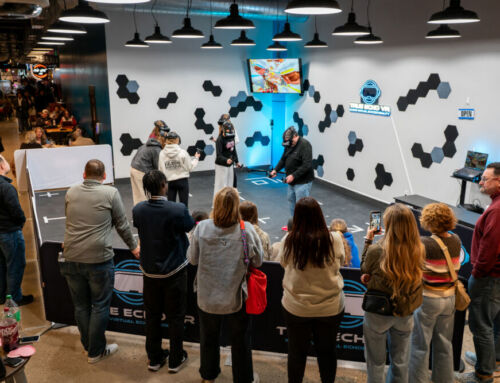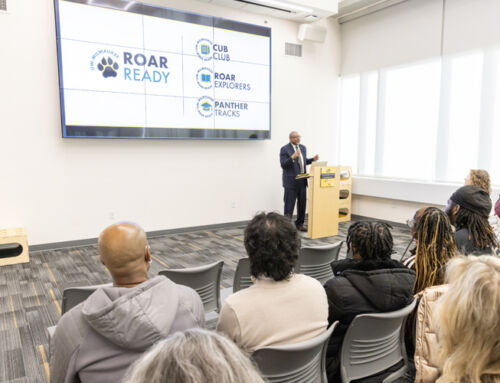
Over one quarter of U.S. entrepreneurs are immigrants, and Harvard Business Review says their businesses are more likely to thrive as they create job opportunities and revive areas with new ideas. The resilience and unique skill sets often acquired by those immigrating to a new country are a huge asset to communities and the economy, and their businesses bring in billions of dollars. This series highlights Milwaukee businesses that are founded, owned and operated by immigrants. We’ve had the privilege of hearing their stories and backgrounds, as well as what makes them so valuable to our community.
In 2013, though, a new government took control, throwing the country into political and economic turmoil. Fearing for their safety, Leo and Maria took their two children and immigrated to the United States in 2015.
They settled in Miami for two years, learning about how to survive in America. Maria didn’t speak any English. She worked in dry cleaning and enrolled in a customer service program through the city. She recorded each class and went through them with her husband, spending each night practicing in order to become competent in interviews and interactions with customers. At the end of the course, she received special recognition.
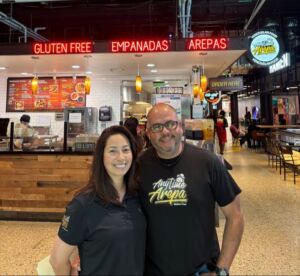
For Leo and Maria Farfan, the taste of an arepa or an empanada brings them back to the beaches of Margarita Island, Venezuela, where the delicious food was sold only minutes from the ocean. Living there was like a vacation, until the country’s dictatorship forced them to flee with nothing but the clothes on their backs.
“I love to talk, and I love to share with others. When you can’t communicate easily, it’s hard,” Maria said.
Leo reconnected with a friend from high school who was living in Wisconsin. In Miami, arepas could be found anywhere, but in Wisconsin there were none. That sparked an idea.
“In Venezuela, we eat arepas every day, anytime,” Leo said.
“We exchanged the white sands for the white snow,” he added.
In June 2018, Anytime Arepa began with a tent and portable grill at the Kenosha Harbor Market. They sold out their first day. Maria considered their business her “master class,” where she learned through trial and error how to communicate with customers in English.
They then began working with Fooda, bringing lunches to offices downtown. The couple taught their local customers what an arepa was and listened to their feedback, becoming encouraged that this business could be a success.
“Empanadas and arepas are our memory food that we love. We miss it and we bring it to you to share,” Maria said.
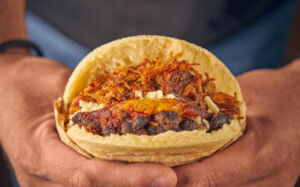
In 2019, they brought Anytime Arepa to Zócalo Food Park. Soon after, the pandemic started. Thankfully, they were working with CASHDROP to offer an online platform to customers. This became vital during the time of curbside pickup and online ordering.
Anytime Arepa had a base kitchen in Milwaukee, but they had to pay by the hour to use it. When the kitchen closed, they scrambled to find another place for their business.
“You have to go through the learning process, the hard part, first, and then you can harvest,” Leo said.
Since Zócalo mainly drew customers in the summer, Leo and Maria wanted to find a place for their business in the winter in order to stay afloat financially.
“When you start a business, you sometimes have to go with it and accommodate your needs around your reality,” Leo said.
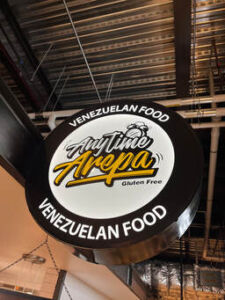 They met Omar Shaikh, owner of the 3rd Street Market Hall, through another vendor, Dairyland. They opened in the Market Hall in May 2022, and have now been there two years.
They met Omar Shaikh, owner of the 3rd Street Market Hall, through another vendor, Dairyland. They opened in the Market Hall in May 2022, and have now been there two years.
“Being here at the Market Hall and having our own space, we have the opportunity to develop more ideas and improve what we offer. It’s like an experiment,” Maria said.
Maria oversees cooking and kitchen operations, while Leo handles logistics and inventory. Anytime Arepa has now become a vendor at American Family Field.
The Farfans are in awe of how far they’ve come. When they began in 2018, hardly anyone knew what an arepa was.
“We are doing here what we couldn’t do in our country,” Maria said.
As much as they still miss Venezuela and mourn the state of their country, Leo and Maria have found that they love Wisconsin.
“I can feel the sand warm on my feet, the water and the breeze. It feels like my house…I feel welcome here in Wisconsin,” Maria said.
“We are committed to our community and our business and our family. That’s the most important thing for us,” said Leo. “We’re here and we see our future here.”


